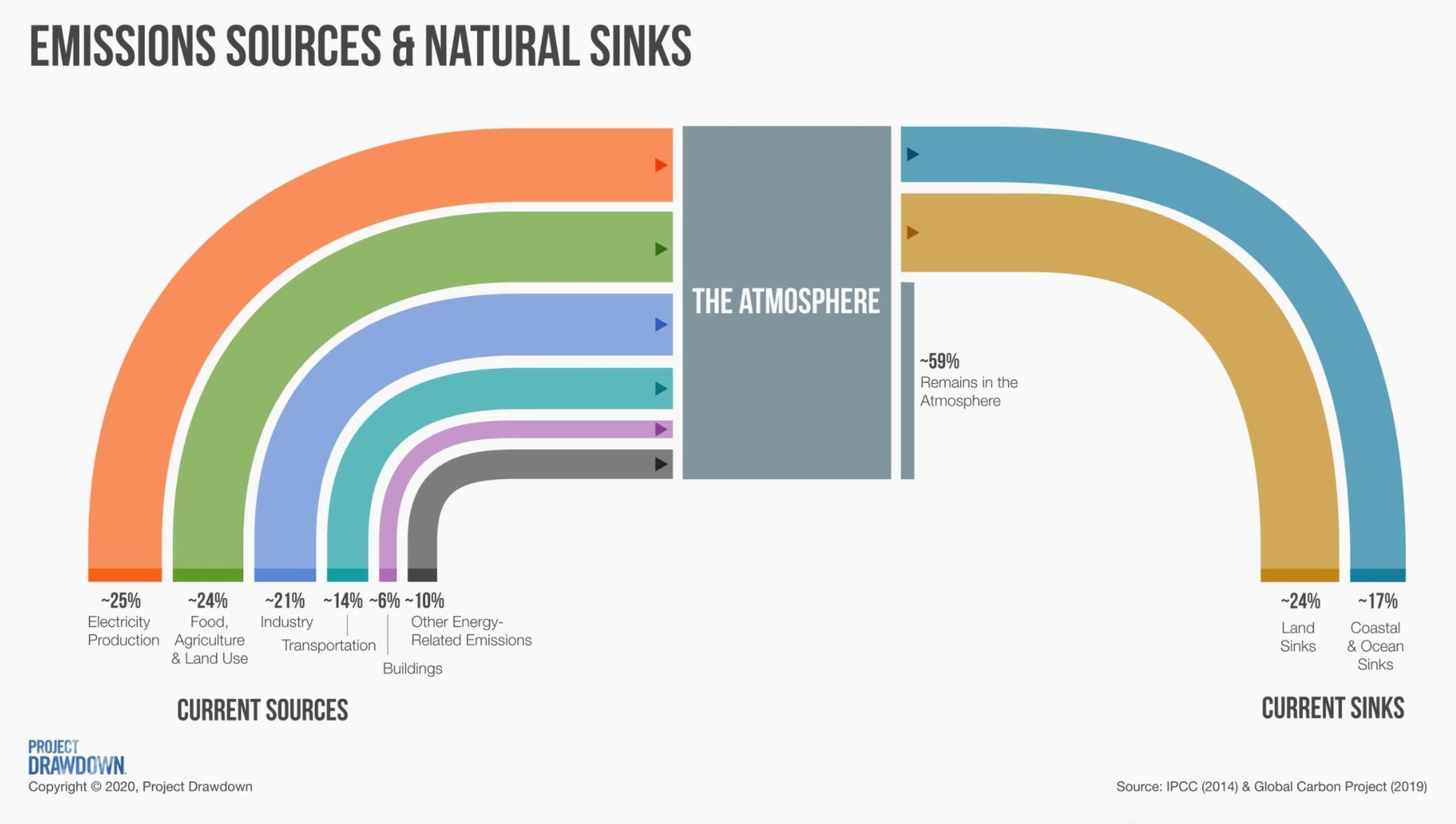The climate technologies venture capitalists are backing
The world needs to invest about $3.5 trillion per year to keep global average temperatures from rising to dangerous levels, according to the Intergovernmental Panel on Climate Change. So far, we’re not even close.


The world needs to invest about $3.5 trillion per year to keep global average temperatures from rising to dangerous levels, according to the Intergovernmental Panel on Climate Change. So far, we’re not even close.
Despite a record $370 billion investment in wind and solar last year, that’s just a fraction of what’s necessary to decarbonize the energy sector. Most of the trillions needed will go toward scaling up known technologies—solar, wind, batteries, smart grids, transmission lines, and energy efficiency—but those fixes have their limits.
The targets adopted in the Paris climate accords imply emissions should drop by half within a decade, and reach net-zero by mid-century to keep temperatures from rising 1.5° Celsius above pre-industrial levels. That will require an unprecedented economic transition.
Silicon Valley’s answer is “climate tech”—an expansive category that includes any technology that can reduce greenhouse gas (GHG) emissions or remove them from the atmosphere: reforestation drones, a mini-nuclear reactor, or an energy savings smartphone app.

Since 2013, an estimated $60 billion of venture capital has flowed into climate-related companies, according to the accounting firm PWC. That represented about six cents for every venture dollar invested in 2019, but includes almost anything that can be reasonably expected to affect emissions —and maybe some things that don’t. Is data center software “climate tech” if it reduces energy consumption, or is it just a way to cut corporate utility bills?
But the hype cycle has already begun. “Climate tech” is being attached to startups as catnip for inventors, just like bitcoin or AI a few years ago. As the money and attention grow, opportunists eager to make a quick dollar will follow. Arguably, they already have: The founder of the electric truck maker Nikola, who recently resigned after a fraud investigation by the Securities and Exchange Commission, was a salesman with experience retrofitting trucks, selling alarms systems and even, yes, selling used cars online.
Quartz summarized the landscape for climate tech in Silicon Valley and around the world. Investors, burned by expensive failures during the first clean tech boom between 2006 and 2011, are returning as costs to start and scale a company fall, and the expected market grows. Below are the sectors with the largest global venture investment based on calculations by PWC.
1. Transportation
Sector emissions: ~14% of global GHG emissions (transportation is the fastest-growing category)
After a 143-year run, the internal combustion engine is on the skids. More than a dozen countries have said they will ban or restrict them starting as early as 2026. A host of technologies are racing to fill in the gap, including batteries, hydrogen, and synthetic fuels. A new generation of vehicles is emerging to match: Our future is likely to be crowded with electric scooters, bikes, mono-wheels, autonomous shuttles, semi-trucks, and even electric planes capable of vertical takeoff and landing. The global shipping and aviation industries have committed to cutting or zeroing out their emissions in the coming decades (betting on still-unavailable technology). Nearly $50 billion has flowed into mobility solutions since 2013. Tesla is the big fish here, along with the enormous expansion of electric vehicles, particularly in China (nearly half of all investment), as well as micro-mobility, e-scooters, and car-sharing platforms.
Standout startups
🚗 Electric cars: NIO, Tesla, Rivian, Lucid, Nicola, Byton, WM Motor, Xpeng
2. Food, agriculture, forestry, and land use
Sector emissions: ~24% of global GHG emissions
Nature is the Earth’s biggest carbon sink. Each year, about 41% of humanity’s carbon emissions are reabsorbed by the planet’s oceans, plants, and terrestrial ecosystems. Startups are betting that boosting these emissions reductions will deliver some of the cheapest ways to slow climate change, while restoring the world’s ecosystems. Their methods include replacing livestock with plant-based “meat,” deploying drones to reforest vast areas, sending up satellites to track and prevent deforestation, and adopting precision agriculture to reduce water and fertilizer use.
Standout startups
🍔 Food and protein substitutes: Impossible Foods, Beyond Meat, Memphis Meats, Ripple Foods, Clean Crop Technologies, Apeel
3. Energy and efficiency
Sector emissions: Electricity production accounts for ~25% of global GHG emissions
Decarbonizing energy is at the heart of the climate effort. Most fossil fuels will need to be retired, or their emissions sequestered, by mid-century to prevent dangerous warming. The toughest problem is removing carbon from energy generation and storage. Startups are tackling this in part by improving existing technologies, such as constructing “million-mile” batteries or mini-nuclear reactors. But a second group is using the Valley’s software acumen to upgrade boring, staid industries like power utilities with digital technologies. Data is at the core of this. Machine learning algorithms can assess a company’s energy use, streamlining its operations and sourcing clean energy, often while saving money. These two strategies promise to constitute some of Silicon Valley’s biggest wins, and—because of the risk and expense—its biggest losses.
Standout startups
🏭 Efficiency: Alturus, Ecomedes, Advanced Energy Solutions, Malta
4. Heavy industry and materials
Sector emissions: ~21% of global GHG emissions
Heavy industry, at its core, is about heating things up. To make steel, concrete, aluminum, and other chemicals, we need blistering hot temperatures, usually from burning fossil fuels. As we approach mid-century, almost all of those processes will need to be replaced by lower-carbon alternatives. From plastic recycling (Waste2Tricity) to cooling (Dearman) to hydrogen fuel (Charm Industrial), many startups are thinking up new materials and energy sources to replace what we have now. Ginkgo Bioworks is recruiting bacteria to reduce reliance on chemical fertilizers, and Mobius is repurposing organic waste from pulp and paper mills for biodegradable, compostable plastics. Materials will likely succeed first. For heavy industry, the route to profitability is hard: Industries tend to rely on expensive, long-lived equipment, and upgrading them will be exceedingly difficult. But as governments raise the cost of carbon, either through regulation or pricing, incentives to switch will grow. Any startup that succeeds may come to dominate a global industry.
Standout startups
👕 Materials: Modern Meadow, Ginkgo Bioworks, Zymergen, Mobius, Monolith Materials, Particle Works, Visolis
5. Buildings
Sector emissions: 6% of global GHG emissions (up to 17.5% when accounting for electricity use)
The world has 230 billion square meters of building space, reports Project Drawdown, and a tiny fraction is optimized to save energy. The solutions are often low-tech, from upgrading insulation to installing solar water heaters, but the potential savings exceed 6% of global GHG emissions. Most of these companies will never become household names, since they operate behind the scenes: They help large companies and property owners manage buildings better, using sensors and software to reduce energy consumption from heating, cooling, lighting, and operations. Dollar for dollar, they’re poised to have an outsized impact.
Standout startups
🏢 Building efficiency: EcoFactor, Verdigris, Katerra, Uplight Energy, Curb, Enlighted
6. Carbon capture and storage
Expected emission removal: 5 GtCO2 to 15 GtCO2 per year by 2050
Climate models suggest removing carbon dioxide from the atmosphere will be necessary to meet the goals set out in the Paris accords. Startups are testing two main strategies: sequestering and storing carbon from waste emissions at factories and power plants, or pulling carbon directly out of the atmosphere. Neither has ever been deployed at the scale (or the cost) needed to stabilize the climate.
But startups have jumpstarted a market for the technologies. On the supply side, startups like Opus12 convert waste CO2 into chemicals and fuels, Project Vesta uses a naturally occurring mineral called olivine to store carbon along the coast, and CarbonCure is turning CO2 into calcium carbonate and mixing it into concrete to make it stronger. Tech companies are serving as early customers as well. Financial firm Stripe announced this May it will spend at least $1 million per year to secure long-term storage of carbon removed from the atmosphere as part of its negative emissions commitment.
Standout startups
⏬ Direct air capture: Carbon Engineering, Global Thermostat, Carbon Engineering, Climeworks, Verdox, Mosaic Materials